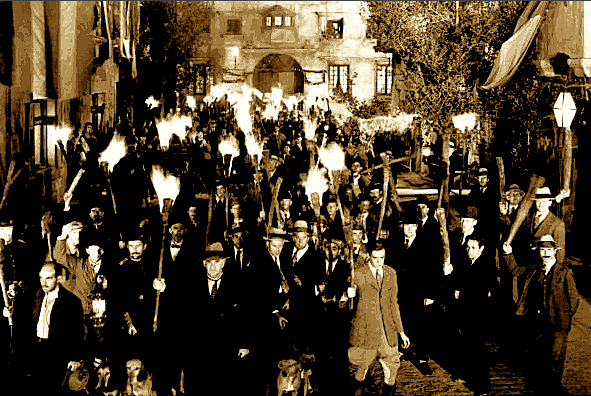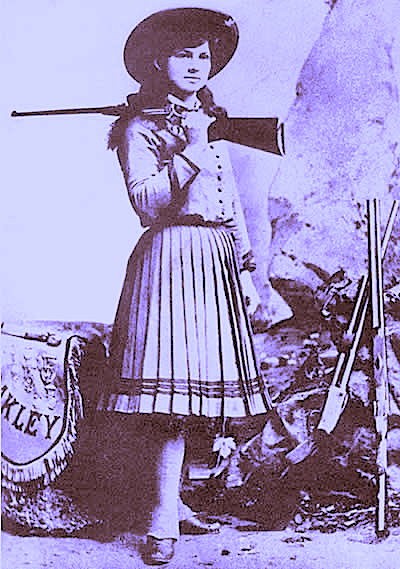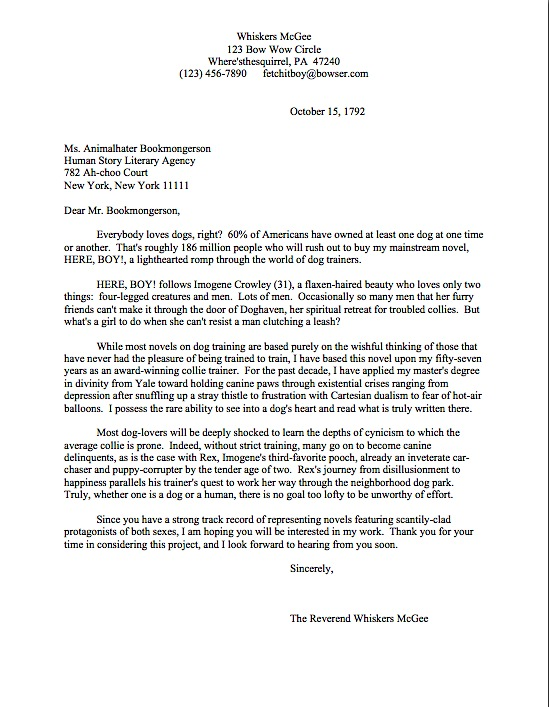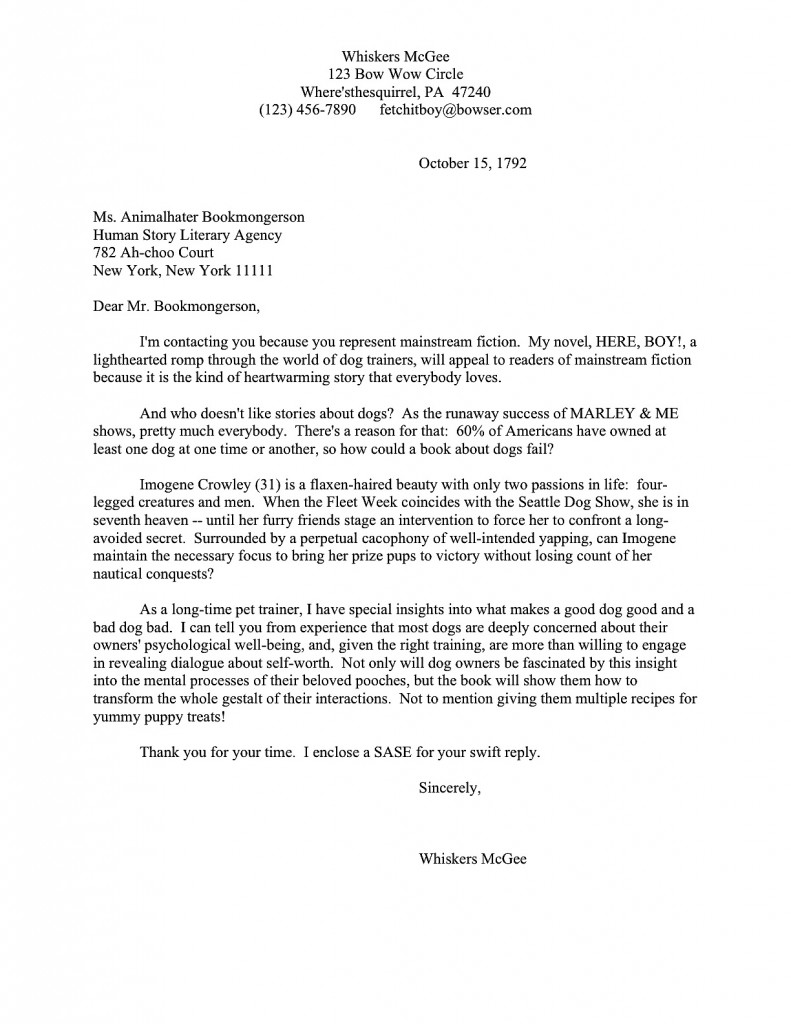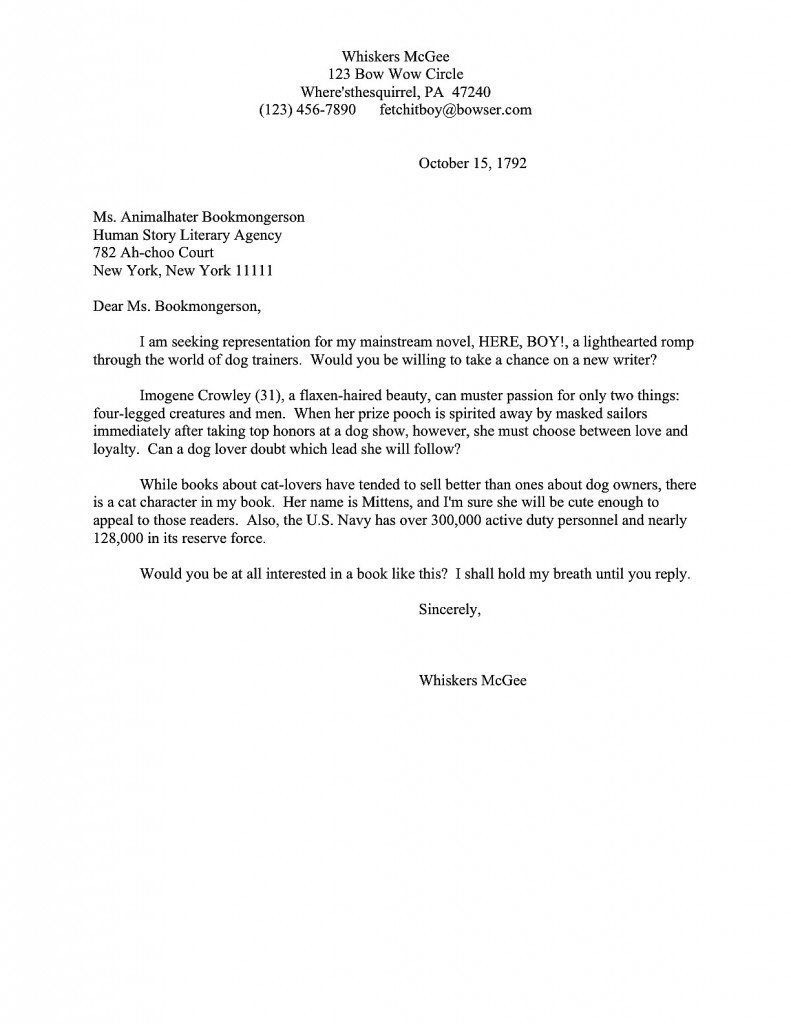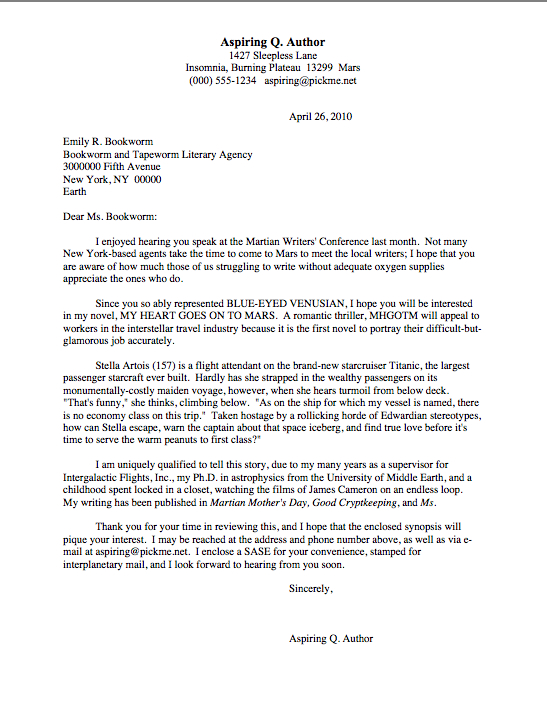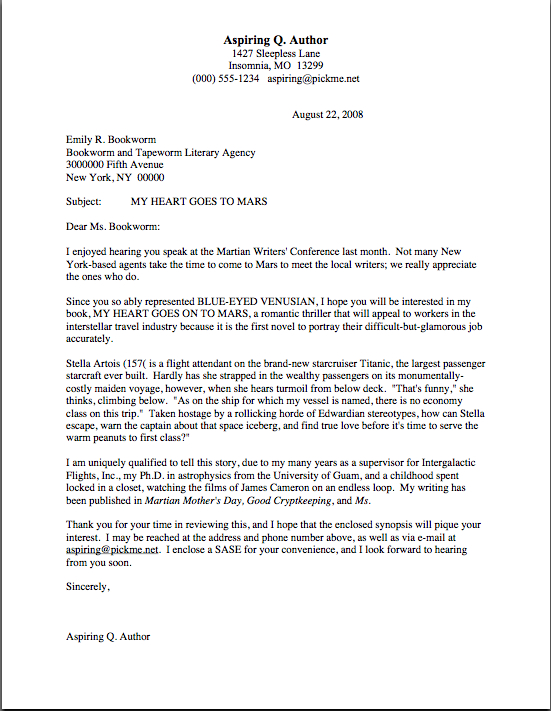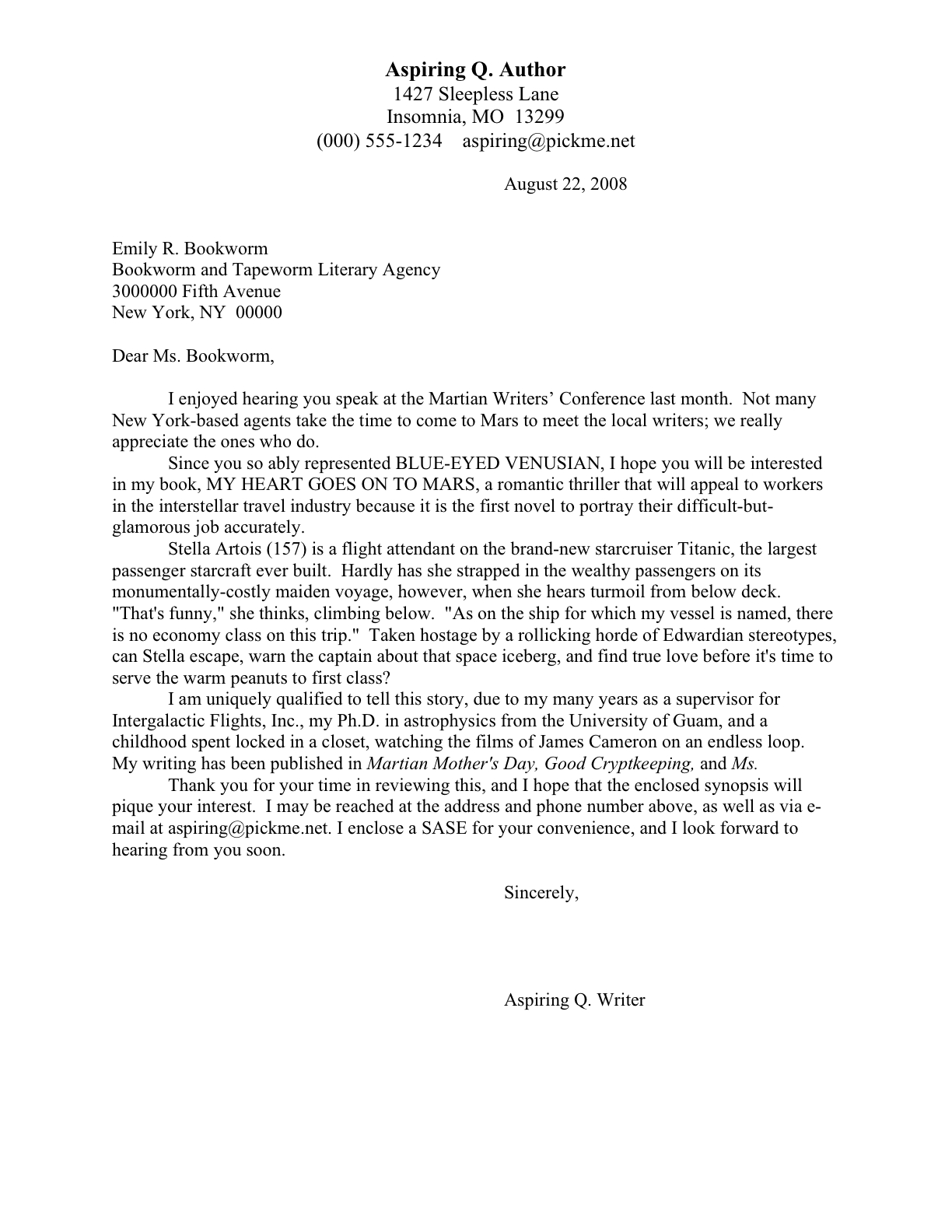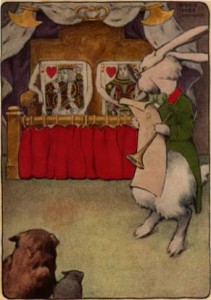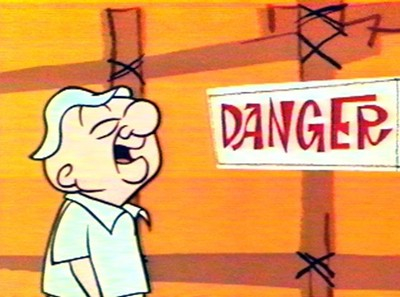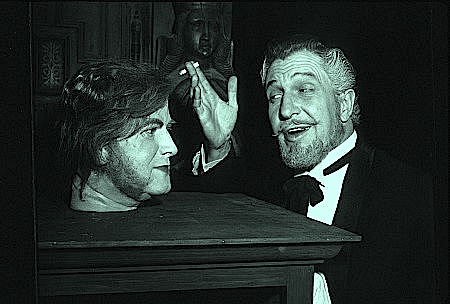Before I launch into today’s post, I am delighted to bring you some fabulous news about a member of the Author! Author! community, long-time reader and incisive commenter Kate Evangelista. Kate’s first novel, TASTE, will be published by Crescent Moon Press! Please join me in congratulating her on this wonderful leap forward in her writing career — and in looking forward eagerly to the day when I can let all of you know that the book is available for sale.
It sounds like a great read, too. Take a gander at the blurb:
At Barinkoff Academy, there’s only one rule: no students on campus after curfew. Phoenix McKay soon finds out why after she finds herself on school grounds at sunset. A group calling themselves night students threatens to taste her flesh until she is saved by a mysterious, alluring boy. With his pale skin, dark eyes, and mesmerizing voice, Demitri is both irresistible and impenetrable.
Unfortunately, the gorgeous and playful Yuri has other plans. He pulls Phoenix into the dangerous world of flesh eaters. When her life is turned upside down, she becomes the keeper of a deadly secret that will rock the foundations of the ancient civilization living beneath Barinkoff Academy. She doesn’t realize until it is too late that the closer she gets to both Demitri and Yuri, the more she is plunging them all into a centuries-old coup d’état.
Sounds exciting, eh? It also, if you’ll forgive my lapsing into the practical in mid-kudo, an awfully darned good role model for anyone on currently in the process of trying to write a descriptive paragraph for a query or a synopsis, by the way should anyone be interested. Kate’s charming author photo, too, is instructive: she comes across as friendly, interesting, and certainly literate, with all of those shelves in the background. Not to mention the playful gleam in her eye that promises adventure to come.
So well done on several fronts, Kate. It’s a genuine pleasure to see a writer who has worked as hard as you have receive recognition, and I, for one, want to read that book.
It just goes to show you, campers: it can be done. Keep persevering, everybody — and keep that good news rolling in!
Back to the business at hand — or rather, back to the hiatus between the last theory-minded Queryfest posts and the rest of this week’s reader-generated practical examples. (Look for the latter to begin on Wednesday and continue through the end of the year!) After having devoted Sunday’s post to a Christmas-themed parable about the importance of vivid, original details to impressing every querier’s beloved nemesis, Millicent the agency screener, I fully intended to run this companion piece, another anecdote-based lecture on specifics, on Boxing Day. Then the lights went out (again!) but the oven remained operational (post-Christmas cookies!), and I never managed to post this yesterday.
I suppose I could just have skipped it and moved on to pragmatic query consideration today, but in case I was too subtle in my last post: just as the threshold between an opening page of a manuscript or book proposal that leaps off the page at a weary-eyed Millicent and one that doesn’t is frequently a turn of phrase, image, or specific that surprises her, the difference between a query that makes a weary-eyed Millicent jerk bolt upright, exclaiming, “Wow! This story/argument/memoir story arc has potential!” and one that leaves her unmoved is sometimes as little as a single, creative detail that she’s never seen before.
That’s harder than it sounds to pull off: as I pointed out on Sunday, Millicent — like her boss the agent, the editors to whom the agent pitches clients’ books, the members of the editorial committees to which those editors suggest manuscripts they would like to acquire, and any experienced contest judge — reads a heck of a lot. Not only in general, but in the book category that her boss represents.
And aspiring writers, unfortunately for their queries and submissions, often do not have the time, inclination, or the access to what others are writing to be anywhere near that familiar with what Millicent would and would not consider a cliché. Even writers who, bless their warm and literature-loving hearts, routinely improve their professional knowledge by not only keeping up with the new releases in their categories, but also seeking out works by first-time authors of books like theirs in order to see what has pleased the agents and editors who handle them recently, will often remain blissfully unaware that a pet plot twist, character trait, or turn of phrase is not original. To them, it just sounds good.
How could they know, poor benighted souls, those particular plot twists, character traits, and turn of phrase have turned up in a good quarter of what crossed Millicent’s desk within the last six months? Admittedly, if any of those things appeared in a recent bestseller in that book category, it’s a safe bet that our Millie will be inundated with them for the next two years — more if a movie version appears. And because so many writers define good writing in a particular category by what sells well — not the only criterion, I think, nor the best — a submitter is often genuinely unaware that his nifty description on page 14 echoes the same nifty description on page 247 of a bestseller, a fact that almost certainly will not be lost upon a well-read Millicent.
At least, not after she’s cast her eyes over the 53rd similar submission. Of the week.
Of course, not all popular elements are derived from established authors’ works. By some mysterious means known only to the Muses alone, the zeitgeist seems to whisper the same suggestions in thousands of writerly ears simultaneously. So often does this occur, and so lengthy is the lag time between submission to an agency and eventual publication for most first books, that even an extremely conscientious trawler of the latest releases would have a hard time predicting what types of details or story arcs to avoid this year, as opposed to next.
What does all of that mean in practice? Well, it’s pretty easy to bore Millicent, for one thing: see the same plot, plot twist, memoir story arc, or descriptive detail 1,700 times in any given year, and you might become a trifle inured to its charms, too. In order for a detail, image, or argument to impress her as original, she genuinely has never to have seen it before — or, more realistically, never have seen it done in that particular way before.
Or anywhere near as well. And even then, she has to like it.
That doesn’t mean, though, that going completely wacky or waxing surrealistic is necessarily the way to win her literary heart, either. As we have discussed before, publishing pros make a pretty strong distinction between the fresh, an original concept, twist, or voice that’s likely to appeal to an already-established book-buying audience, and the weird, an original concept, twist, or voice that doesn’t really fit comfortably into either the expectations of the book category for which the author is ostensibly writing or the current literary market. A fresh plot, story arc, or phrasing is the polar opposite of one that’s been done (see earlier point about the fate of original twists from bestsellers), or, even worse, is dated.
Confused? You’re certainly not alone: due to the market-orientated slant of freshness, a book idea that’s fresh today might well have been done by tomorrow — and will be downright dated a year from now. Complicating things still further, agents and editors will sometimes talk about a fresh take on a well-worn topic.
“Okay, Anne,” originality-lovers everywhere cry, scratching their heads. “I’ll bite: is that good, or is that bad?
Well, it’s a good question, for starters — but yes, a fresh take is a positive thing. Consider, for the sake of example, the story of the Ugly Duckling. That’s certainly been done a million times, right? Since most YA readers and virtually all literate adults currently buying books on U.S. soil may already be presumed to be familiar with the basic story, it would be hard to surprise any reader, much less one as genre-savvy as Millicent, with the essential plot twist there. But if, for instance, a writer felt that the UD’s turning out to be something completely different and pretty watered down the message of the early part of the tale — what, it would have been perfectly okay for the other poultry to have made fun of an ugly duck who actually was a duck? — and presented essentially the same premise, but had UD possess the ability to foresee that the duck pond was shrinking and lead her waddling brethren and sistern to swampy safety elsewhere, thus winning their respect, that would be a fresh take on a well-worn topic.
Oh, you may laugh, but a clever author did in fact create a similar variation on this story that was very successful, both artistically and commercially: it was a little number called THE COLOR PURPLE. Very fresh — in 1982. But do I even need to tell you how many Ugly Duckling variations the Millicents of the mid-eighties saw tumble into their inboxes? As anyone who perused women’s fiction bookshelves regularly in the late 1980s and early 1990s could no down tell you to her sorrow, it was done. Over and over again. And since that essential plotline has been done so many times since, can you imagine how dated the same manuscript would appear if it showed up on Millicent’s desk today?
So get your thinking caps on, campers. We’re going to devote the rest of today’s post to learning to walk the fine line between the Scylla of what’s been done and the Charybdis of the weird. But before I launch into the how-to part of our program, allow me to tell you a little story.
To set it up for those of you who have not boarded a commercial airliner lately, since the airlines have started charging to check bags, many passengers have simply begun wheeling their bulky suitcases down the center aisle, fighting with one another to find space for them in the overhead bins. During the holidays, this battle royale necessarily entails jostling some passengers’ shopping bags full of presents too delicate or valuable to pack in checked luggage. In the midst of this ongoing conflict between the crammers and the fearful, we join our intrepid memoirist.
After my companion and I were seated — he in 18B, your humble narrator in 18C — I felt my chest tighten: the gentleman behind me had evidently bathed that morning in some pepper-based cologne. That, or he was a secret agent for the airline transit authority, testing the viability of toxic scents in knocking nearby passengers senseless.
A sympathetic flight attendant told me I could move if I could find an empty seat away from the source of the nerve agent. Having first gobbled down some precautionary antihistamines to ward off an asthma attack, I wiggled my way into the center aisle to begin scouting.
Up by row six, a tall woman in cashmere with faux fur cuffs knocked me sideways — right into in the lap of the man in 6C. I repeatedly apologized for treating him like Santa Claus (he didn’t seem to mind much), but I could not budge: the imperious woman was blocking the aisle too thoroughly while searching for a place to stow her immense roll-on luggage in the already crammed overhead bins.
A time-conscious flight attendant murmured in her wake, tactfully replacing the shopping bags the passenger was blithely flinging to the floor. “Could you please hurry, ma’am? We can’t close the cabin doors until everyone is seated, and we’re already behind schedule.”
Clearly, though, that baggage had to be placed just so. As my assailant made her noisy way down the aisle, I was able to free myself of my human seat cushion and follow, clambering over the flotsam and jetsam the flight attendant could not manage to scoop up. I felt like the caboose in a slow-moving train.
By the time I could smell where I was supposed to be parked, the picky passenger had managed to free enough space in the bin above row nineteen to shove her suitcase inside. The flight attendant and I pushed from behind.
As I slipped, choking, into my assigned seat, the woman turned to the flight attendant. “Well, that’s a relief. Now you need to switch my seat assignment.”
The exhausted flight attendant looked at her blankly. “You’re in 6E.”
“Yes,” the woman said testily, “but my bag is back here. I’ll have to wait until everyone else gets off the plane before I can grab it. I need to sit next to it.”
Feeling both revolutionary levels of resentment rising off the rest of the passengers and my throat constricting from the cologne fumes, I knew my time had come. I leapt to my feet. “She can have my seat! I don’t mind coming back for my carry-on.”
The woman had plopped herself into my seat before the flight attendant could even nod. She thanked no one.
The flight attendant propelled me forward to row six before the irritating passenger could change her mind. I gave the five extra bags of pretzels she slipped me to the man who had let me share his lap.
Amusing, I hope? Good, but as those of you who have been hanging around Author! Author! for a while had probably already begun suspecting by the end of the first paragraph, I didn’t share that anecdote with you purely for entertainment value, or even to vent. (I thought the other passengers were going to attack the rude lady. She must have delayed our departure by 15 minutes.)
No, I’ve included this story here because it has an editing problem — several, actually. Any guesses?
Hands up if you think it is too long. Is the action/narrative ratio off? Do you think a swifter telling would have allowed the comedy inherent in the situation to come out more clearly, or would you have liked to see more internal reaction from the narrator?
Which is right? Well, it depends upon what kind of narrative the author is creating — and where the scene is going. In a memoir, the reader expects the narrator’s character to be revealed through her reactions to the events around her, so I might well want to ramp that up. Getting out of the narrator’s head and into her body might be a good place to start: I felt my chest tighten is a strong detail in that respect; it makes the same point as I began to worry, but does so by showing how the emotion manifested, rather than just naming it.
Oh, hadn’t I mentioned lately that most of the memoir Millicent has been seeing lately seldom mentions a reaction occurring below the narrator’s neck? I guess one has to read an awful lot of memoir manuscripts to know about that.
While showing, rather than the dreaded telling, is good strategy in many kinds of writing, there honestly isn’t a one-size-fits-all revision strategy for fiction. How a savvy writer might go about showing what’s going on in the scene above and what kind of details might make the piece sing would vary. In a romance, for instance, the reader would probably want a slightly different focus, perhaps showing my companion’s dismay at being first left alone, then saddled with another seatmate, or more complex interactions with the gentleman with the lap. So the smart specifics to add here would illustrate the relationship between the narrator and her companion: he could make an ineffectual grab after her as she flees the cologne, for instance, or try to convince Santa to switch seats with him, so the pair could travel together.
If, by contrast, this is a scene intended for a thriller, and the reader has some reason to suspect that one of the passengers on the plane is carrying something lethal, this semi-amusing bit of business might merely be a means of prolonging the suspense, right? In that instance, I would want to edit to speed up this scene, so Millicent would not become impatient at a too-lengthy digression. Or I would have the protagonist spy another character doing something odd out of a corner of her eye, allowing the reader the fun of speculating whether the obnoxious woman was some sort of decoy, creating an intentional distraction from the real threat. If I really wanted to ratchet up the danger, our heroine could feel something cold and hard beneath her after she tumbled into Santa’s lap: a gun?
Or, to surprise Millicent more, how about a titanium leg that can receive radio signals?
The possibilities are legion, right? Many self-editors, though, as well as a hefty percentage of writers’ group critiquers, would not take intended book category into account when making decisions crucial to revising this scene. All too often, short and terse is deemed appropriate for any type of book.
But it doesn’t always work, because — wait, I’m going to let you see why for yourself. Here’s that scene again, winnowed down to a just-the-facts-ma’am telling. This, too, is a style Millie sees quite often in memoir submissions.
After my companion and I reached our seats, I felt my chest tighten: the guy behind me reeked of cologne. I waved down a flight attendant to ask if I could change seats, and she said yes, but she was too busy to find one for me. I gobbled down some precautionary antihistamines to ward off an asthma attack and began scouting.
A woman shoved me into some guy’s lap in row six. She was trying to find an overhead bin to stow her luggage, but the ones near her seat were already crammed. The flight attendant kept urging her to hurry, since the plane couldn’t start taxiing until everyone was seated. I remained trapped in the guy’s lap until the woman had exhausted all of the possibilities near her seat and moved up the aisle, with the flight attendant replacing the items she had displaced.
The woman finally found enough space for her bag above row nineteen, just behind me. But before I could buckle myself in, the woman demanded to sit near her bag, rather than in her assigned seat.
The passenger and flight attendant had a small argument about it, causing the other fliers to express resentment. I offered to switch seats with her, in order to solve both of our problems. The flight attendant gave me extra pretzels; I shared them with the guy whose lap I had previously occupied.
Not a very effective editing job, is it? It’s precisely the same story, true, but most of its charm has evaporated. Any guesses why?
If you immediately shot your hand into the air, exclaiming, “The humorous voice is gone!” lower that hand 18 inches and pat yourself on the back with it. Very, very frequently, insecure self-editors will sacrifice narrative voice to pace, resulting in the kind of tale you see above.
But one of the main selling points a writer has for an agent or editor is freshness of voice! If it’s largely edited out, how is Millicent to know that this is a writer with an interesting and unique worldview?
If, on the other hand, you cried out, “In this version, the reader doesn’t really learn much about who these characters are or why this incident is important. It’s just a flat description of events,” you also deserve a pat on the back, because that’s also true. Characterization is a very frequent casualty of the revision process, because, well, it takes up room on the page.
I’m reserving today’s gold star, though, for those of you who noticed both of these problems, yet pointed out, “Hey, Anne, both of these examples share a flaw I’d like to see fixed: what are any of these people like? Admittedly, the second example exhibits much weaker characterization than the first, but most of these characters are one-note: the pushy passenger is rude, the flight attendant harried, and the guy with the lap — well, let’s just say that I couldn’t pick him out of a police lineup, based upon this account. I’d find this story both more enjoyable and more plausible if the narrative showed them more. In fact, isn’t this a show, don’t tell problem?”
Wow, that’s one well-earned gold star. Both versions are indeed light in the characterization department.
Some lovers of terseness out there find that diagnosis a bit dismaying, I sense. “But Anne,” they protest, struggling manfully to keep their commentary brief, “isn’t the usual goal of editing to cut out what doesn’t work? You admitted above that the original anecdote was a little long — won’t adding characterization just make it longer?”
Not necessarily — if the characterization is achieved not through analysis or lengthy descriptions, but through the inclusion of vivid, unexpected details and interesting phrasing. Such as:
The lanky woman seemed barely muscular enough to drag her leopard-print suitcase behind her, yet she surged up the aisle, flinging open every single overhead compartment on both sides as she passed. A small child bashed in the head by a pink umbrella moaned in her wake. The flight attendant leapt to keep the morass of holiday gifts, rolled-up winter coats, and overpacked suitcases from tumbling onto the passengers who had arranged their carry-ons so carefully just minutes before, but to no avail. Within moments, rows seven through twelve resembled a picked-over bargain bin at a thrift store.
“Could you please hurry, ma’am?” she kept murmuring after every slam and between bites on her regulation pink-frosted lips. The first-class flight attendant was wearing the same color. “We can’t close the cabin doors until everyone is seated, and we’re already behind schedule.”
Thirteen sets of hanging doors later, the woman shoved aside a red shopping bag to make room for her carry-on. I helped the flight attendant wrestle the last three compartments shut before both of us provided the necessary muscle to inter the leopard. She did not thank us.
Obviously, these three paragraphs are not an adequate substitute for the entire story, but see what I have done here? The details provide characterization that neither the first version’s narrative reactions nor the second’s series of events showed the reader.
In this third version, however, the reader is neither left to fill in the specifics — something a time-strapped Millicent is unlikely to do — nor expected to guess what conclusions the author wants her to draw from these actions. The details make it perfectly plain that the lanky woman could not care less about anybody else’s comfort, feelings, or even rights: leaving those bin doors open behind her for the flight attendant and another passenger to close shows the reader what kind of person she is, just as the specifics about the volume of the luggage and the uniform lipstick, contrasted with the flight attendant’s consistent politeness, illustrate her dilemma, and the narrator’s automatically pitching in to help demonstrates her approach to the world.
Vivid details are the gem-like tiny touches so beloved of editors everywhere, the telling little tidbits that illuminate character and moment in an indirect manner. The frequency with which such details appear in a manuscript is often one of the primary factors professional readers use in determining whether to keep reading — and if such unusual specifics are incorporated skillfully into a query’s book description, they often prompt a request for pages.
Why? Well, more than almost any other device, they give the reader insight into the author’s worldview.
Sound like too amorphous a concept to be useful at revision time — or query-writing time, for that matter? It isn’t. A good writer sees the world around her with unique eyes, and — ideally, at least — powers of observation heightened to an extent that many non-writers would actually find painful.
This requires pretty sensitive nervous tissue, as H.G. Wells pointed out. He liked to call writers Aeolian harps (that’s a fancy way of saying wind chime, in case you were wondering), responding to our perceptions of the world through our art and, he hoped, making it better in the process.
Wells is now best-known for his science fiction, of course, but in his lifetime, many of his most popular novels were about social interactions. As I mentioned back on Veterans’ Day, his Mr. Britling Sees It Through was considered at the time THE definitive work on the British home front during the First World War. My favorite of his social novels is The Wife of Sir Isaac Harman, a comedy about marriage and the establishment of decent, affordable apartment buildings for young working women.
Okay, so his political beliefs were not particularly well-hidden in his social novels. Neither was his evident belief that the primary purpose of female intellectual development was for those pesky women with brains to make themselves more attractive to men with brains. But his eye for social nuance — and social comedy — was exceptionally good.
The tiny little details that our sensitive nervous tissue lead us to notice — the way you wear your hat, the way you sip your tea, as the song says — are a large part of what makes great writing seem almost miraculous to readers. Not everyone notices the worn-down heel of the left shoe of the man in his interview suit, after all, or the way the eyes of the president of the local charitable organization occasionally glaze with hatred while her mouth is loading the members with drippingly complimentary gushings.
Feeling special yet? You should: being aware of these details is a gift, after all, a sharpness of eye with which not very many human beings are endowed. Yet most writers don’t rely upon it nearly heavily enough in constructing their narratives — and still less in their queries.
And to someone whose job it is to read manuscripts all day, every day, seeing that gift wasted can start to get pretty annoying. “Where are those delightfully unexpected little insights?” the Millicents of the world think, running their fingertips impatiently down page 1. “Where is the evidence that this writer sees the world in a way that will change the way I see it myself?”
A tall order, yes, but — wait, do I hear some cries of distress out there? “Did you just say,” a strangled voice asks, “page ONE? As in my manuscript should produce evidence of my unique worldview and uncanny eye for telling little details that early in my book? Can’t I, you know, warm up a little?”
Great question, strangled voice. The answer is yes, if you want to make absolutely certain that an agency screener will read PAST the first page. (If you doubt this, please take a gander at the HOW NOT TO WRITE A FIRST PAGE category on the archive list at right. It’s a series on reasons that agents report for not reading past page 1, a pretty sobering group of posts.) And to anticipate your next cri de coeur, yes, you should make an effort to provide such evidence in the book description section of your query, for the exceedingly simple reason that at most agencies, that’s all the page space you have to convince Millicent that her boss needs to read your manuscript.
Some of you submitters may find the necessity for cajoling reading more than a few paragraphs from people who, after all, asked you to send a chapter or 50 pages or your entire book. If you’re a novelist, it can be especially galling: presumably, if your forté as a writer were brilliant single-page stories, you would be entering short-short competitions, not writing 400-page books, right?
Believe me, I’m sympathetic to this view. If I ran the universe, agents and editors would be granted an entire extra day or two per week over and above the seven allocated to ordinary mortals, so they could read at least 10 pages into every submission they request. Writers would get an extra day, too, and lots of paid vacation time, so we could polish our work to our entire satisfaction before we sent it out.
And Santa Claus would tumble down my chimney to shower me with presents every day of the year, instead of just one.
Unfortunately, I believe I have mentioned before, I do not run the universe. If we writers want to be successful, it behooves us to recognize that queries and submissions are often read very, very quickly, and adapt our first few pages — and our queries — to that reality.
Sorry to be the one to break that to you. But before you condemn the rigors of the industry too vigorously, take a moment to consider the conditions that might lead to someone at an agency or publishing house to conclude that it would be desirable, or even necessary, to give a requested manuscript only a page — in a manuscript or in a query — to establish the author’s brilliance.
Lest we forget, Millicent can sometimes be the world’s most impatient reader. While some screeners and agents are looking to be wowed, Millie is in a rush to get out the door; she’s put off her lunch date three times already this week, because she had to work through lunch, and she’s not going to miss it again.
It is now 12:10, she’s just noticed a run in her tights, and your manuscript is the next in the pile. How easy do you think it is going to be for it to impress her into reading past page 1?
I bring up Millicent’s foul mood not to scare you — but since a writer has absolutely no control over the mood of the person deciding whether to accept or reject his manuscript, it is worth preparing your submission so that it would impress EVEN Millicent at her most frustrated. That’s just good submission strategy.
It’s also good querying strategy. Assume a bored Millicent longing to be startled out of her malaise by an exciting detail, and you’re halfway to perking up your query.
I hear some of you huffing, but pause to spare some sympathy for the Millicents of the agenting world, as well as Maury, the editorial assistant who is her equivalent in publishing houses. They are expected to read reams and reams of paper very, very fast — and for this Herculean effort, they are not necessarily always paid. Often, in this harsh economy, this work is assigned to interns. If it’s the summertime, Millicent is probably on break from a good Northeastern college, someplace like Barnard, and since her parents can afford to support her while she takes an unpaid but résumé-building job, she’s probably from an upper-middle class background.
If it’s the rest of the year, or she has already graduated, she is probably paid — poorly — and lives in an apartment the size of a postage stamp with four other young people with similar jobs. Millie would not have gone into this line of work had she not liked reading — in fact, she may have writing aspirations herself, or she may want to become an agent or editor, so taking a job screening queries and submissions seemed like dandy on-the-job training at the time.
But now, after weeks on end of seeing hundreds upon hundreds of rather similar storylines, her capacity for appreciating literature has markedly dimmed. Sometimes, when she is especially cranky, a single line of awkward dialogue or two lines free of conflict can make her feel downright oppressed.
And your manuscript will have to get past Millie, and often also a senior assistant who has been screening manuscripts for even longer and has an even shorter boredom fuse, before it lands on the agent’s desk.
Still think it’s a good idea bore her, as long as your writing is strong enough?
What if, as occasionally happens, your manuscript is the next on her list to read immediately after she has broken up with her loutish boyfriend, she twisted her ankle clambering up from the subway, or she’s wondering how she’s going to pay the rent? And if poor Millie has just burned her lip on her non-fat double-shot tall latté — well, let’s just say that the first few pages of your manuscript had best be tight. And your query had better be fascinating.
And either should feature at least a few delightful little details that will make Millicent sit up, forgetting her bright magenta lip, and cry, “Eureka! This writer showed me something I’ve never seen before, presented in magnificent, clear prose! Forget my lunch date — I have something to READ!”
The miracle of talent, as Mme. de Staël tells us, is the ability to knock the reader out of his own egoism. Let the first example an agent sees of your writing be living proof of that.
I think you have it in you; that gift of insight is what made you want to write in the first place, isn’t it? Don’t let the difficulties of the querying and submission processed dim that mission. Millicent, and readers everywhere, will be the better for the originality of your insight.
Oh, and do make an effort to share those overhead bins; you never know when the guy upon whom cast-off luggage tumbles will turn out to be Millicent’s brother. Although that’s an ending to an Ugly Duckling story she’ll never see coming. Keep up the good work!
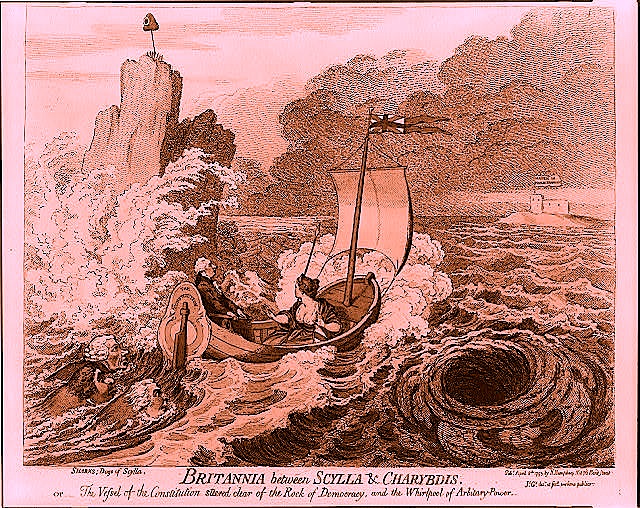

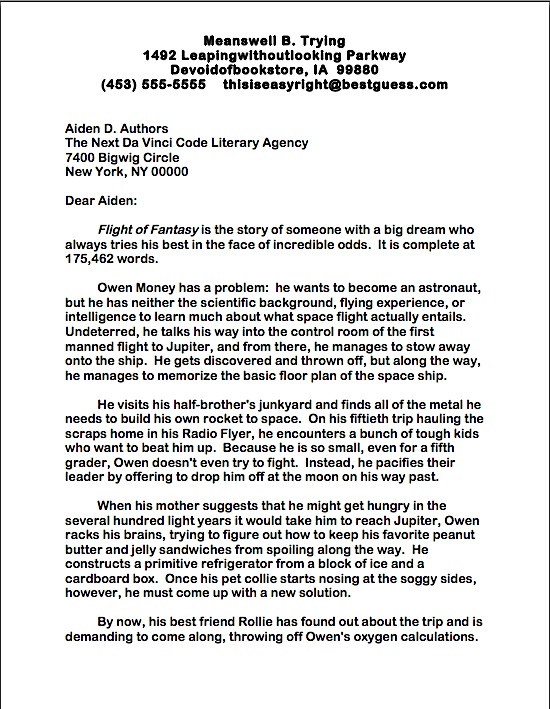
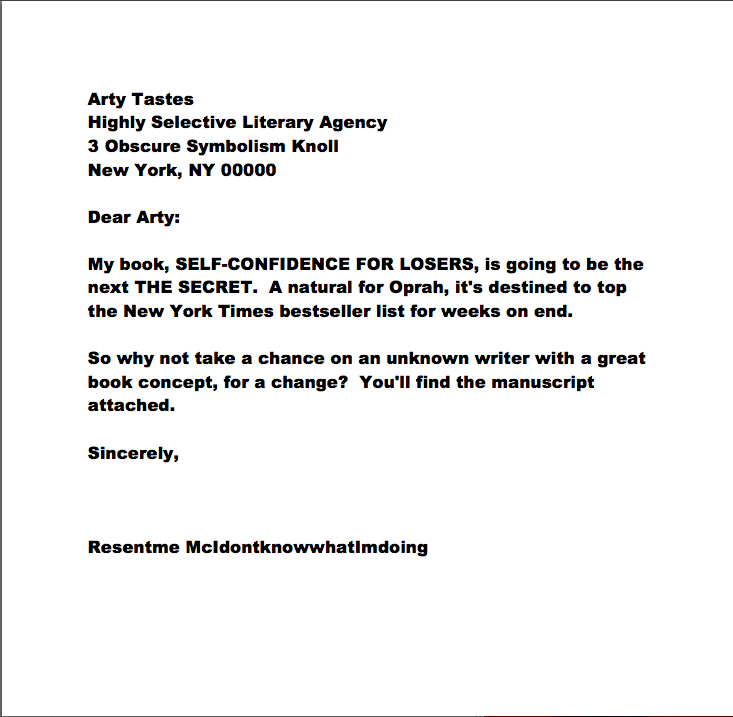
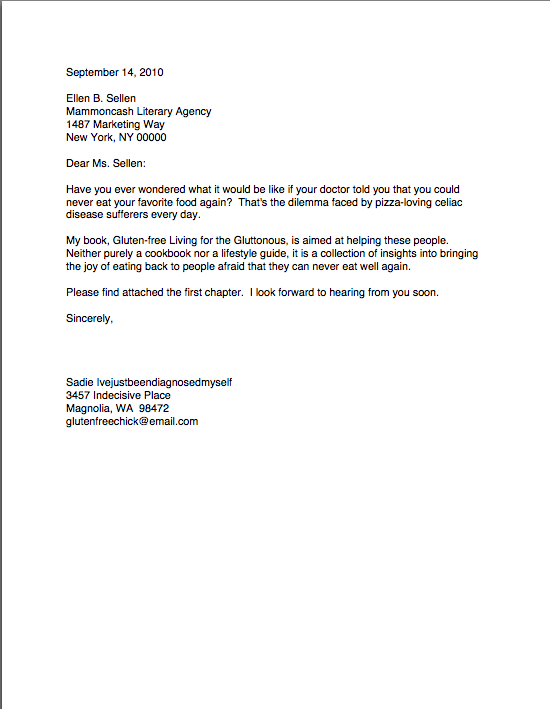
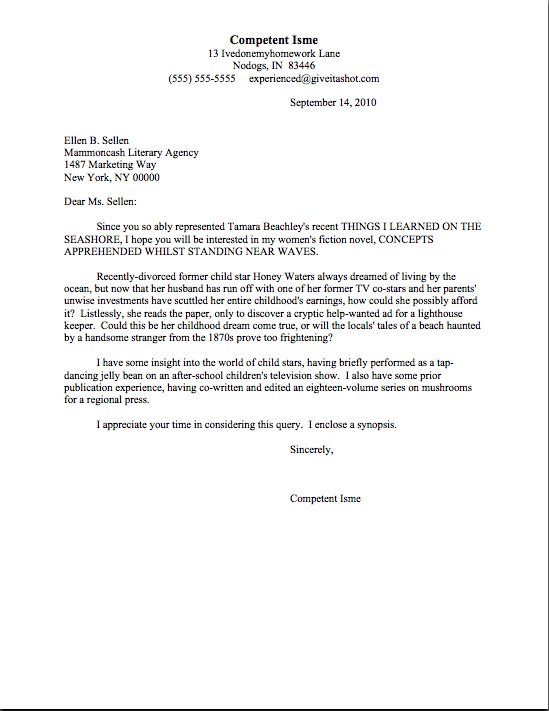
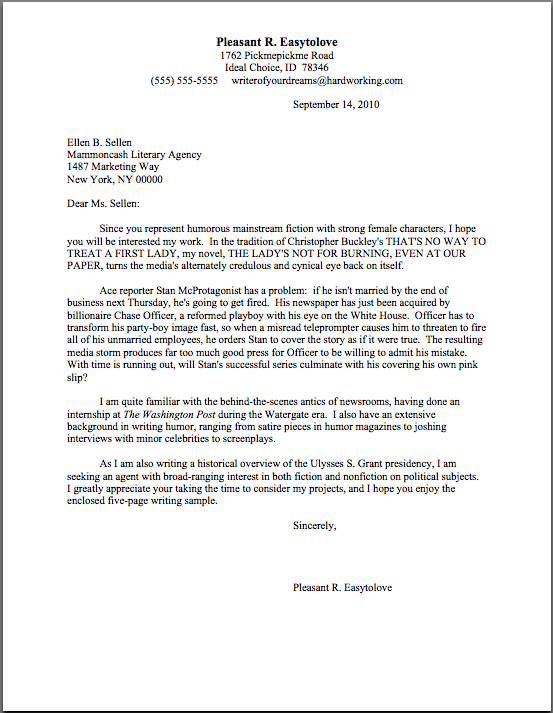
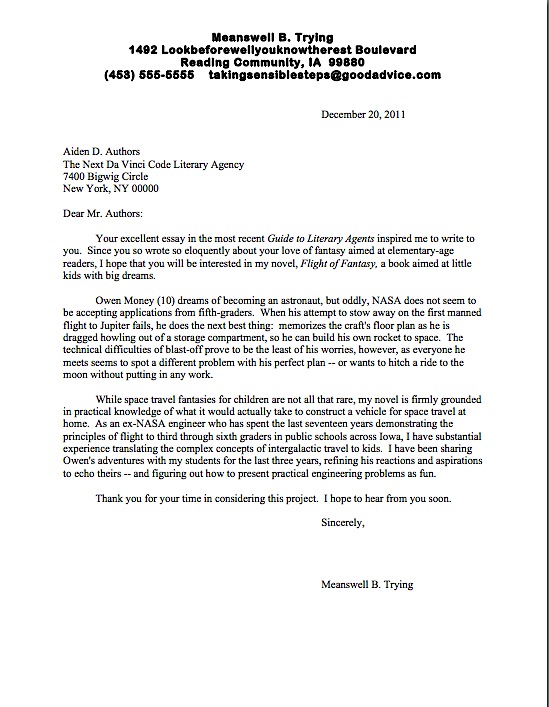
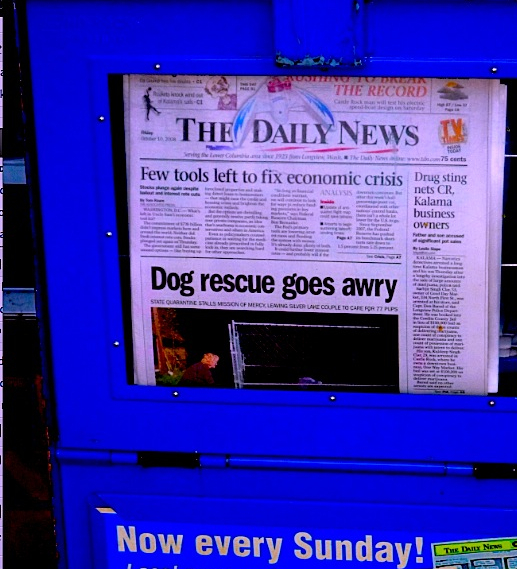
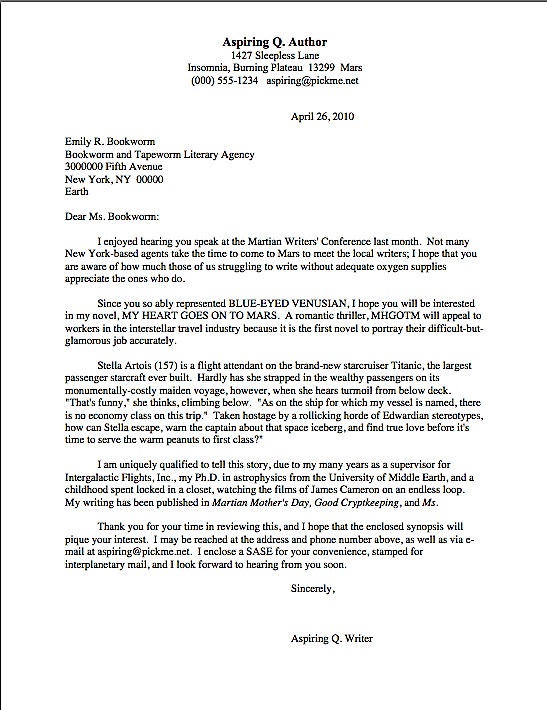
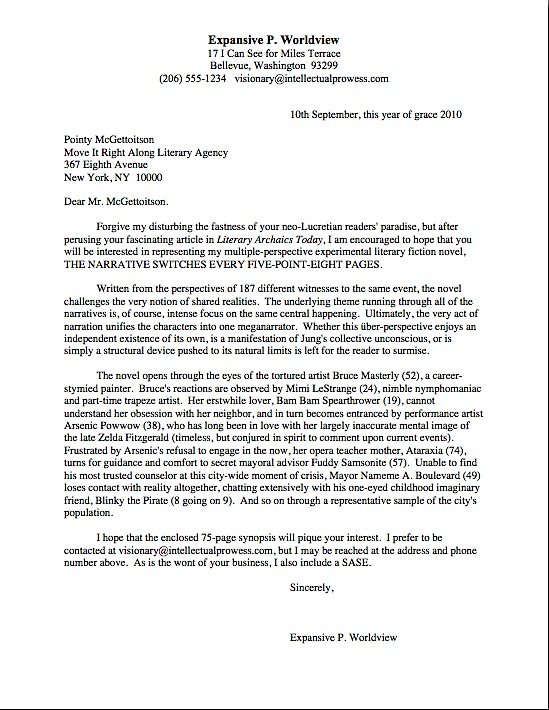
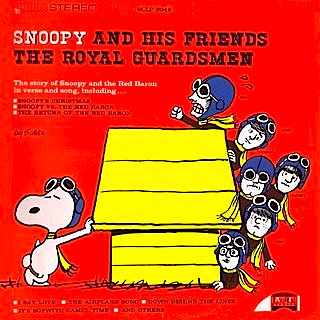
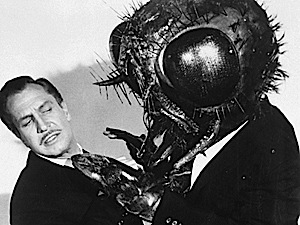

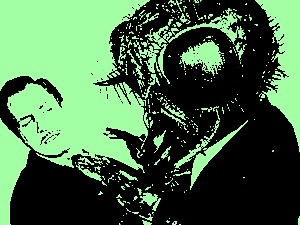
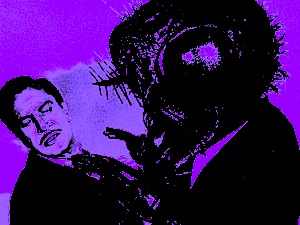
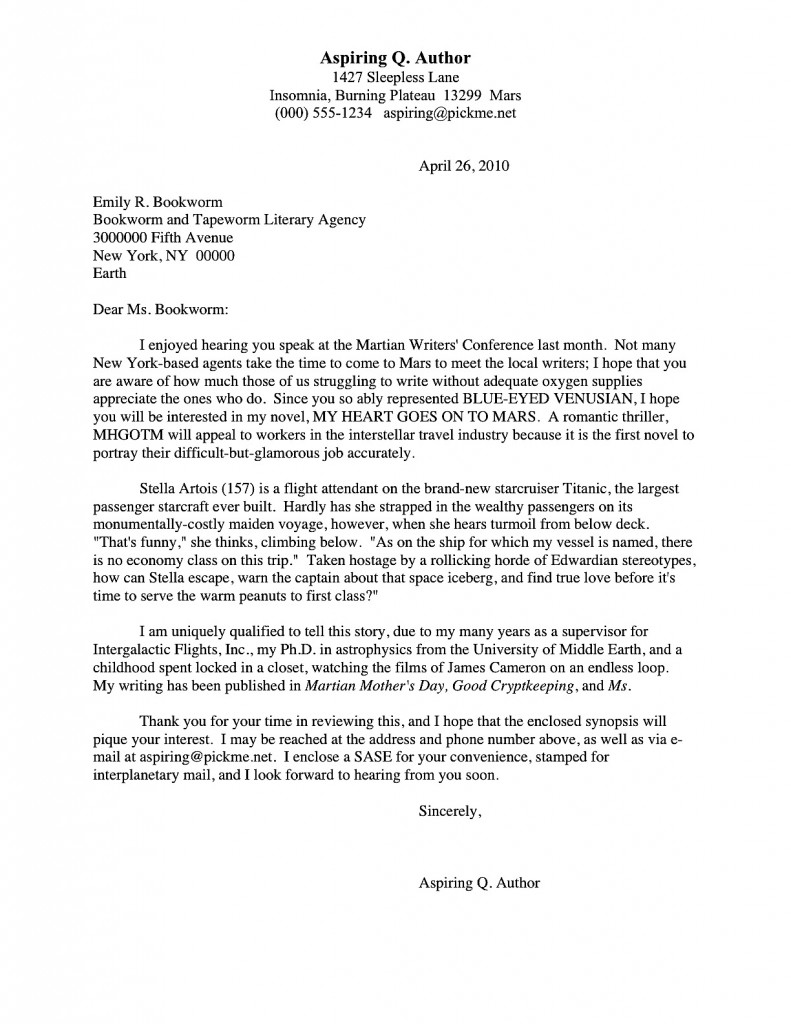
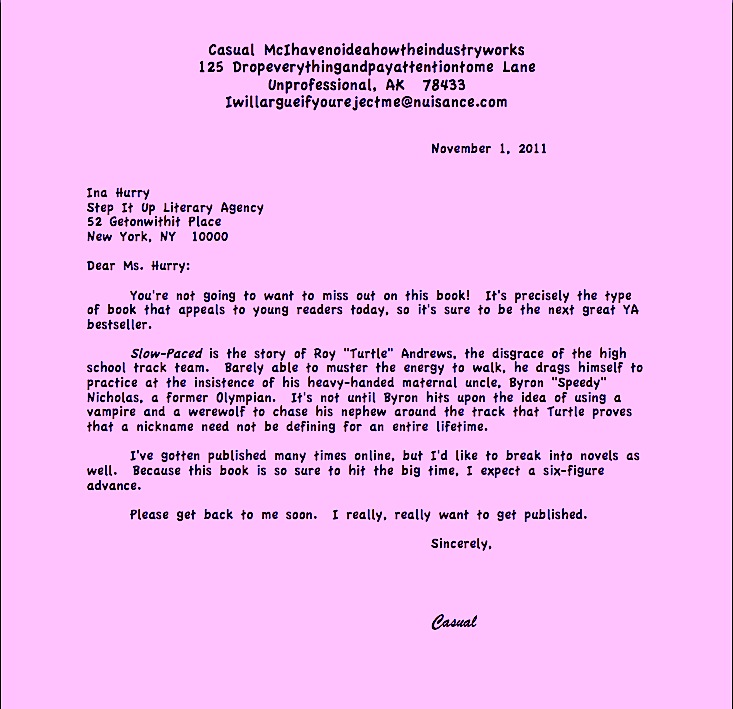

 Realistically, every English sentence a writer places under an agent or editor’s nose is a writing sample: the query, the synopsis, the bio, the book proposal. Every paragraph is yet another opportunity to show these people that you can write.
Realistically, every English sentence a writer places under an agent or editor’s nose is a writing sample: the query, the synopsis, the bio, the book proposal. Every paragraph is yet another opportunity to show these people that you can write.
